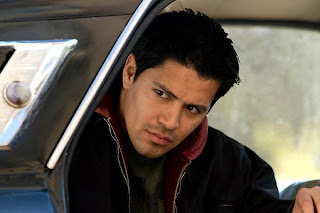"How old are you?"
"Seventeen."
"Oh. So you must be a college freshman."
"No. I'm in 3rd year college."
I always encounter this whenever I meet new people. It's awkward but I'm getting used to it. In fact, seeing the different reactions on their faces was sort of fun.
Don't get me wrong. I am not a picture of the girl with eyeglasses, braided hair and metals on her teeth. If you also think that I have a brain like Einstein's, again, you're wrong.
I'm just like the ordinary. I groom and dress up like how girls should be. And like any other students, I also cram, get lazy, feel bored, get low grades in some of my subjects and sometimes fall asleep when facing my books.
You may now be wondering, what brought me to college at such a young age?
I could say that it was a combination of luck, effort, and prayers.
I was accelerated twice; first in kindergarten, then in Grade 5 under the acceleration program of the Tugbok SPED Center. I had a hard time adjusting to my new environment but I eventually coped up as time passed by.
In high school , my teachers and classmates knew about my age and pampered me like a baby most of the time.
With the grace of God, I graduated high school as Class Valedictorian at the age of 14.
You might wonder how I cope with the pressures of college life. Honestly, the first year was hard. I was so young then and lacked two years in terms of knowledge and experiences. As a result, I failed in some subjects.
To be more persistent on my studies, I decided to apply for a scholarship grant from the Scholarship on Tertiary Education Program (STEP). I was qualified and became an official STEP scholar.
My plan did not fail. Because of my scholarship which required a grade of at least 85 in each subject, I indeed became very persistent in studying. I really wanted to be retained in this program because of its great benefits. This determination put me in the Dean's List thrice.
My age even had a lot of advantages. I received many compliments from people who appreciated me for what I had attained despite of being younger than the others.
Then I started to realize that age was not a hindrance to my studies I'm just like everyone else, struggling to get the best out of life.
Today, when it comes to the difficulties I encounter as a third year college student, I don't remind myself of my age anymore. After all, it's not age that defines you as a person. It's all about the accomplishment of your dreams and the spirit that takes you there.





































